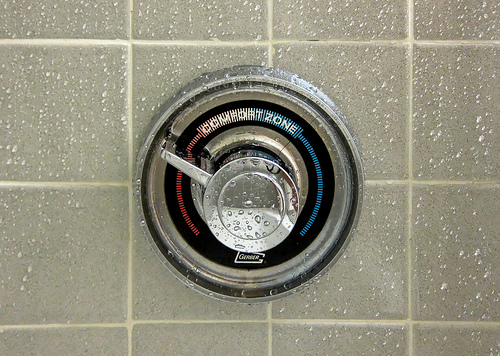4 Solid Reasons Why You Should Step Out Of Your Comfort Zone

That little voice that’s telling you, “That job seems intimidating,” or “Sky diving sounds too scary,” or “Traveling around the world alone sounds dangerous,” is sometimes right, but it’s also holding you back.
Your comfort zone is actually a psychological space that exists to reduce your stress and anxiety and increase your happiness. It’s a sort of emotional plateau that exists so that you are worried all the time.
But, since 1908, scientists have actually found that stepping outside of your comfort zone and into a state of “optimal anxiety” will help you achieve a lot more—mentally and practically, according to Lifehacker. Here’s why you should step out of your comfort zone whenever possible.
1. Anxiety Can Help Your Performance, In Work Or For A Sport
Science has found that a moderate level of anxiety can help people be alert and ready for anything, according to the Wall Street Journal. This means that people who are out of their comfort zones are better at juggling multiple tasks and being more aware of potential problems.
Stephen Josephson, a psychologist in New York City who has treated athletes, actors and musicians told the Wall Street Journal that this enhanced performance is one of the huge pluses of being uncomfortable.
“Coaches and sports psychologists have always known that you don’t want your athlete to be relaxed right before an event,” Josephson said. “You need some ‘juice’ to go fast.”


2. You’ll Be Able To Deal With New Or Tough Situations Better
Trying new things that you’re not comfortable with often will help you learn how to deal with feelings of anxiety and uncertainty, which is a pretty important and useful life skill.
If you try new things often and know that you can enjoy or accomplish things even in the face of unsure feelings, then you’ll be better able to deal with unexpected sources of anxiety.
Then, when something really tough happens in your personal life, you won’t feel like you’re going to break down because you don’t know how to deal with a certain level of anxiety.


3. Uncertainty Will Begin To Motivate You
Not only will stepping out of your comfort zone often help you perform better in a new situation, but you’ll be motivated to take on those kinds of situations in the future. If you tried something new and scary, but it turned out great, you’ll be that much more likely to jump into something new in the future.
For example, if you have been trying new things often and your boss wants to assign a particularly challenging project to someone, then you are more likely to have a “let’s do this” attitude and take on the project rather than asking “what if I fail?”
You will believe in yourself after stepping out of your comfort zone and realizing that you’re capable of a lot—even if it doesn’t feel like it.


4. You’ll Find It Easier To Get Creative
I experience this as a journalist all the time. When a journalism professor first told me to leave the classroom and interview the first person I encountered when I left the building, I was horrified. “What would this person think of me?” and “I don’t want to talk to a stranger!” were both thoughts that I had.
But once I did it, I found learning about someone I had never met fascinating and very rewarding. Now, when I brainstorm ideas for new projects, I try to think of things that would make me uncomfortable to investigate, because the best ideas are often ones that make us anxious and curious.


If you’re afraid to try something because it hasn’t been done before and might not work, then you’re on the right track.
Try getting out of your comfort zone by doing one small, new thing every day. Move your desk to a new location, or drive a different route home.
Then, try taking bigger steps that have a fun incentive, like traveling to a new place. Eventually, you’ll find yourself trying riskier things with fewer immediate rewards, and that space is where you’ll learn the most about yourself.





